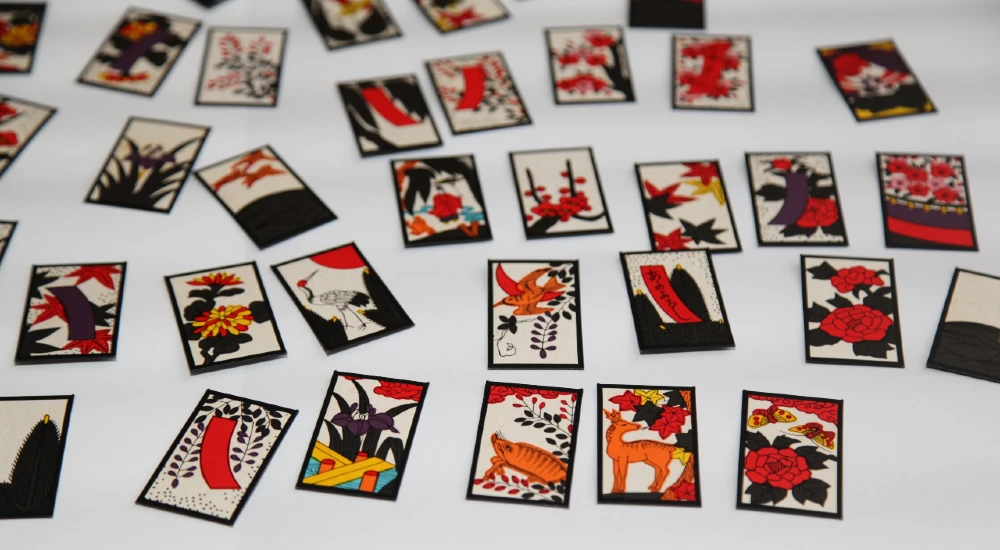How Traditional Japanese Card Games Influence Modern Gaming Trends
April 25, 2025
Traditional Japanese card games, such as hanafuda, have significantly influenced modern gaming culture. These games, deeply embedded in Japanese tradition, have shaped global gambling practices. By understanding their evolution, one can appreciate the blend of cultural heritage with contemporary gaming experiences.

Hanafuda cards became integral to social gatherings and seasonal festivals, embedded deeply into Japanese life.
The influence of these traditional games extends beyond mere entertainment, as they have also impacted online gaming platforms. This is evident in the way modern gaming sites, such as casinobonusca, offer insights into card gaming resources, blending historical elements with contemporary gaming trends.
The history of traditional Japanese card games is a captivating story of cultural evolution. Hanafuda cards, known for their intricate designs and unique play style, were developed in the 16th century during Japan's Edo period. Despite government restrictions, these cards became a popular pastime among various social classes. The evolution of these games highlights how traditional pastimes have paved the way for broader gambling interests.
The Evolution of Card Play in Japan
Hanafuda playing cards are a significant part of Japanese culture and history. Originating from the Portuguese playing cards introduced to Japan, hanafuda evolved into a unique game with its own set of rules and symbols. These cards became more than just entertainment; they were integral to social gatherings and seasonal festivals, embedding themselves deeply into Japanese life.
As hanafuda's popularity grew, so did its influence on gambling activities in Japan. Despite periods of prohibition, these card games survived through adaptation and creativity. The intricate imagery on hanafuda cards was designed to circumvent bans on gambling by disguising the cards' true purpose. Over time, these adaptations contributed to a unique gambling culture that valued strategy and skill over mere chance.
The transition from traditional hanafuda games to modern gambling interests illustrates an intriguing cultural shift. As Japan opened up to Western influences in the late 19th century, the integration of Western-style playing cards into Japanese society became inevitable. This blend of Eastern tradition with Western innovation laid the groundwork for the diverse gaming landscape we see today, where elements of both cultures coexist harmoniously.
The artistic elements of hanafuda cards also played a crucial role in their enduring appeal. Each card features meticulously crafted illustrations representing different months and seasons, incorporating elements from nature such as cherry blossoms, maple leaves, and moonlit scenes. This artistic tradition has influenced modern game design, where Japanese aesthetics continue to inspire visual elements in contemporary card games and digital gaming interfaces. The attention to detail and symbolic meaning behind each card demonstrates how cultural artistry can enhance gaming experiences, creating deeper connections between players and the games they enjoy.
The Global Impact and Online Gaming
The influence of traditional Japanese card games extends far beyond national borders, impacting modern casino games worldwide. The strategic complexity and aesthetic appeal of hanafuda have inspired game developers globally, leading to the incorporation of similar elements in various digital card games. This cross-cultural exchange has enriched the gaming industry, offering players around the world new experiences rooted in rich historical contexts.
With the advent of online gaming platforms, the reach of Japanese card games has expanded significantly. Online casinos now offer variations of traditional games alongside popular Western counterparts, attracting diverse audiences. These platforms provide players with access to a wide array of gaming options, blending traditional gameplay with modern innovations. The evolution continues as more people discover these games through online resources.
Introducing online platforms that offer insights into card gaming resources allows players to explore these traditional games further. These platforms serve as a bridge connecting enthusiasts with detailed information about various bonuses and opportunities available in online casinos. As players seek new challenges and engaging experiences, such platforms play a crucial role in promoting awareness and appreciation for these historical games.
The enduring legacy of traditional Japanese card games remains evident in today's gaming landscape. Their continued relevance highlights the profound impact cultural heritage can have on contemporary trends. As one explores this fascinating fusion of old and new, it becomes clear how these timeless traditions enhance the understanding and enjoyment of modern gaming experiences.
Related content
